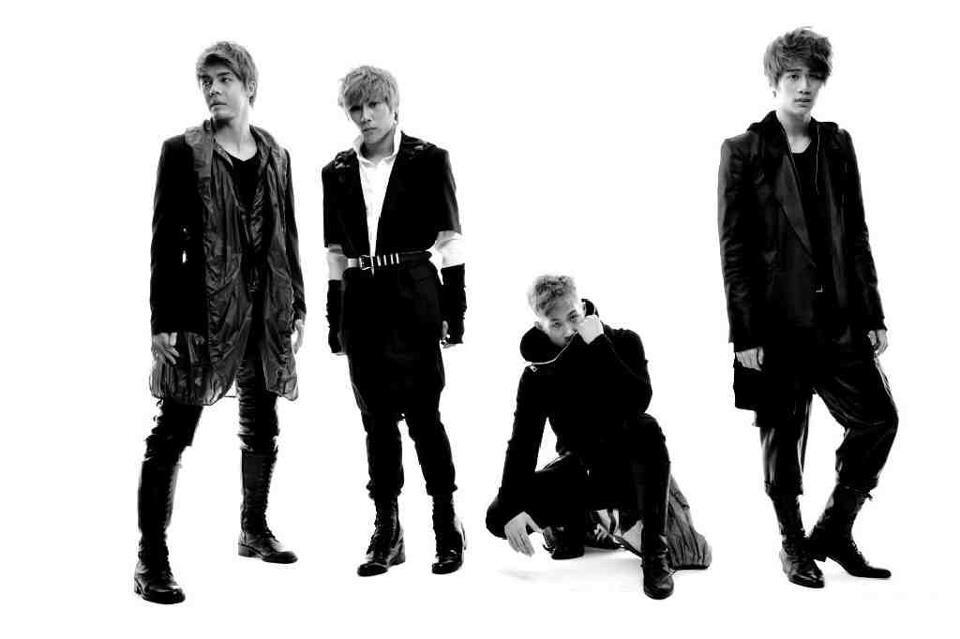Welcome to the latest edition of Seoulbeats Roundtable!
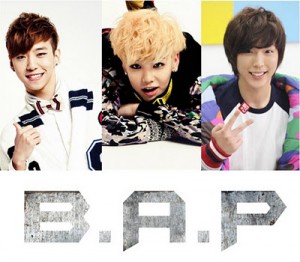 Lately, it seems as though rookie groups have been debuting left and right at an exponential rate. So far in 2012, we have already witnessed the official debuts of several rookie groups (B.A.P, CHAOS, F.I.X., SPICA, and Lay-T), and are anticipating even more to come (EXO, Nu’est, YG’s new girl group, CUBE‘s new boy group, and Woolim‘s new girl group, just to name a few).
Lately, it seems as though rookie groups have been debuting left and right at an exponential rate. So far in 2012, we have already witnessed the official debuts of several rookie groups (B.A.P, CHAOS, F.I.X., SPICA, and Lay-T), and are anticipating even more to come (EXO, Nu’est, YG’s new girl group, CUBE‘s new boy group, and Woolim‘s new girl group, just to name a few).
Unlike the previous years, 2011 was full of rookie debuts (Dal Shabet, Piggy Dolls, Coin Jackson, CHI-CHI, Leader’s, Rania, Brave Girls, Block B, APink, B1A4, X-5, N-Train, Boyfriend, SPINEL, Blady, STELLAR, April Kiss, C-REAL, A-Peace, Chocolat, Swing Girls, M.I.B., 5Dolls, MYNAME, N.Sonic, HITT, AA,… I’m sure there are plenty that I have missed as well) that may have in some cases gained new fanbases, but overall failed make a big enough impact to revolutionize the K-pop industry itself in their first year, the way that other then-super-rookie groups (e.g. the Wonder Girls, DBSK, Big Bang, Super Junior, SNSD, 2NE1, 2PM, and miss A) have in the past.
What do rookie groups seem to be missing these days, and what would your advice be to them to help them stand out from the crowd?
Amy: The easiest answer would just be that there are too many of them, right? While there are people who criticize groups and companies for putting out too much mediocre music (and rightly so), I also feel that it’s often times because the good stuff gets very lost with the bad stuff, just because of the sheer volume of “stuff” we’re getting. Some groups who have released some of the better songs include Rania, Dal Shabet, Block B, and MYNAME. If it weren’t for an over-saturated market already, their music might have made a bigger splash on the, but because they’re also competing with the 60 other Joe Blows of K-pop, their “okay” material is not enough.
Other than a crowded market is that some companies just don’t have enough pull in the scene. There are just as many companies managing idols these days as there are actual idols, it feels. Everyone and their mom wants to jump on the idol trend. When push comes to shove for airtime, why would a producer on SBS/MBC/KBS want to give the limelight to some rookie entertainment company when they can give it to one of the Big 3, who are guaranteed ratings suppliers?
 Subi: Not only is the idol market saturated with groups, but the ENTIRE Korean entertainment market is saturated by idols. From singing to acting to modeling to emceeing, idols are EVERYWHERE. For better or for worse, idols are in high demand. And so, companies are supplying them in order to accommodate this high demand. But this is what ends up happening: in order to keep up with the high demand for idols, companies train them and produce them as quickly and as best as they can, with more emphasis on the former than the latter. A couple years back, idols used to train for 5, 6 years and they were all the better because of it. But can idols afford to do that now? Not if they’re to keep up with high demand. But then companies put out idols that aren’t ready.
Subi: Not only is the idol market saturated with groups, but the ENTIRE Korean entertainment market is saturated by idols. From singing to acting to modeling to emceeing, idols are EVERYWHERE. For better or for worse, idols are in high demand. And so, companies are supplying them in order to accommodate this high demand. But this is what ends up happening: in order to keep up with the high demand for idols, companies train them and produce them as quickly and as best as they can, with more emphasis on the former than the latter. A couple years back, idols used to train for 5, 6 years and they were all the better because of it. But can idols afford to do that now? Not if they’re to keep up with high demand. But then companies put out idols that aren’t ready.
Maddie: I agree with both Amy and Subi.
There’s an incredibly high demand for idols and it seems like some entertainment companies aren’t really concerned with making actual investments. Something I admired about K-pop was the 4-6 year training periods since it reflected how much time and money they dedicated into a group. It also showed how they were more concerned with quality rather than quantity which doesn’t seem to be the case now (I’m really hoping YG changes this with their new group).
I feel that expecting a rookie group to revolutionize the industry with their debut is a little too much. First of all, you need to considered their competition (a slew of other rookie groups and “veteran” groups). Secondly, even KARA and Brown Eyed Girls had terrible debuts and didn’t even impact K-pop before this whole globalization obsession. KARA had a complete line-up change right before their second comeback. Brown Eyed Girls didn’t really gain incredible popularity until “Abracadabra” and this was after two studio albums and 2 mini albums.
The advice I would give these rookie groups and their companies is to take these two girls groups as examples. KARA’s success is owed to their image considering it’s targeted towards their Japanese audience (second largest music industry in the world). Brown Eyed Girls, on the other hand, have experimented with different music genres and because of this are a group to be reckoned with. They also worked on their image and on finding one that really fits them and their sound.
 Companies should return to the basics and really put their investments first by forming groups whose image is original and has potential to be embraced globally yet stays true to K-pop (i.e. 2NE1). Also, the image can’t simply be a gimmick. It should bring another level to the group when partnered with their unique sound. K-pop is very visual and this is one of the reasons why it’s grown in popularity internationally. Yet, once you get passed the pretty faces and bold outfits, it’s the music that is the true foundation of a successful group.
Companies should return to the basics and really put their investments first by forming groups whose image is original and has potential to be embraced globally yet stays true to K-pop (i.e. 2NE1). Also, the image can’t simply be a gimmick. It should bring another level to the group when partnered with their unique sound. K-pop is very visual and this is one of the reasons why it’s grown in popularity internationally. Yet, once you get passed the pretty faces and bold outfits, it’s the music that is the true foundation of a successful group.
Jessie: I feel like many of the idol groups nowadays are lacking in personality. Due to the fact that there are so many of them it is very hard to be exposed to the personalities that they do have, so it is really hard to build any kind of connection between fan and idol. So couple that with mediocre music and it isn’t exactly a recipe for superstardom.
I think that a way to help with this issue is for the entertainment companies to have these groups actively interact with fans via the wide variety of social media options. Idols should be using Twitter and me2day to their full advantage, it is, after all, free advertising. Also, they should consider producing their own web-based reality shows in the same vein as Big Bang TV or 2NE1 TV. With outlets like Youtube, there is no reason to depend on an actual television network to put your group’s face out there. It is all about grassroots marketing to make a name for yourself. If you can build some kind of following on your own, the networks will pay attention.
Nabeela: Rookie groups are lacking ingenuity these days. I personally think a lot of the groups that were involved in the rookie boom of 2011 were riding off successful and popular themes we’d already seen from previous groups. Take for example SNSD, who are practically one of the highest standards of success for girl groups. SNSD quickly became the Barbie dolls of Korea and continued to perpetuate this type of appeal with almost every one of their featured songs and MVs. They caught on like wildfire because that kind of aegyo/cute thing had never been so overdone before. Ironically though, they were overdone in all the right ways during a time where there was nothing like SNSD before, so of course they had all the avenues to be successful. Now, however, it’s apparent that subsequent girl groups are debuting groups of larger and larger numbers, and everyone single one of them is trying to emulate what I call SNSD success. I also think SHINee and 2PM were huge in setting the tone for male debuts. Think about how many groups just look like SHINee–an odd mix of male aegyo, a hint of masculine charm, and a rapper. 2PM was also one of the first boy groups that played up the bad boy attitude considerably, especially when Jaebeom involved his b-boy and acrobatic skills. Now 2PM is consistent with their darker, more somber material, but this also a newly prevalent theme that I’ve seen in rookie groups as wel. A lot of rookies groups these days just seem interchangeable, with their members and their music. Because everything looks the same and sounds the same, the world of K-pop has gotten kind of dull.
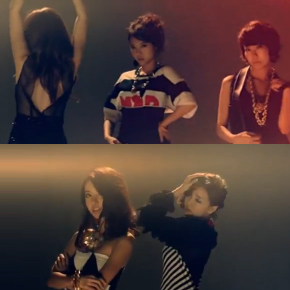 Also another thing that I’ve noticed is the use of forumlas with groups. It’s pretty easy to spot which members of a rookie groups are the vocalists, the faces/publicity, the rappers, the aegyo go-to’s, and the dance machines. We often joke about who is which type, but in truth it is a scary look into how the music industry is becoming more about business than about music. Honestly, how often do we find a K-pop group dedicated to their own natural dynamic, and not the dynamic dictated to them by company using a formulaic strategy? Entertainment companies know very well the formula for at least a moderately successful group, and what doesn’t help is the fact that these kinds of groups are so easy to put together now that so many young kids are willing to abandon other dreams in hopes of becoming an idol. This extensive use of forumlas takes away from the natural personality of a group, and its another reason why so many groups sound and look the same to us.
Also another thing that I’ve noticed is the use of forumlas with groups. It’s pretty easy to spot which members of a rookie groups are the vocalists, the faces/publicity, the rappers, the aegyo go-to’s, and the dance machines. We often joke about who is which type, but in truth it is a scary look into how the music industry is becoming more about business than about music. Honestly, how often do we find a K-pop group dedicated to their own natural dynamic, and not the dynamic dictated to them by company using a formulaic strategy? Entertainment companies know very well the formula for at least a moderately successful group, and what doesn’t help is the fact that these kinds of groups are so easy to put together now that so many young kids are willing to abandon other dreams in hopes of becoming an idol. This extensive use of forumlas takes away from the natural personality of a group, and its another reason why so many groups sound and look the same to us.
If I were to give advice to a rookie group, it would be to follow your natural talents (that would first of all eliminate a lot of crap we so often hear) and play up personality and attitude. Jessie makes a good point about most groups don’t have personalities, and that is all too painfully true. It is impossible to memorable if you don’t have some attitude, some sort of stage presence that makes you worth remembering. Just following a formula makes you bland. If you want to be an idol, you have to be funky, you need to be unique.
Gil: I have this tendency to fall in love with rookie groups; I’m giving out my love so easily.
Since I’m a recent addition to the K-pop fandom I tend to get exposed to random rookie groups, but the overall trend I see is that there are so many of them and they look so familiar. They have very similar concepts and K-pop has a very short attention span so they all blur together.
Many of the rookie groups’ companies are small, and while they might have enough capital to produce a group, they don’t have enough to maintain it. Going on variety shows is important for a group’s success and you need the right type of connections and powers to do so that small companies might not have. Again, with the ADD of K-pop, we need something that’s always there and “unique” so trying to be the next 2NE1 or the next Super Junior isn’t going to cut it.
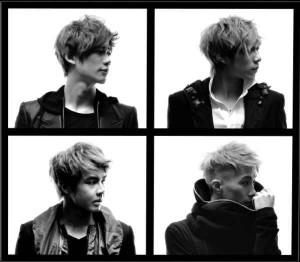 Fannie: What I find interesting is that none of the big companies (with already established, well-known groups) debuted groups last year, and this year they seem to all be coming out in full force: SM, YG, Cube, Pledis, TS, and Woolim rookie groups are all going to be fighting with each other for the top spot, which is an exciting prospect, to say the least. It’s cruel reality, but a large part of the reason that none of the rookie groups from last year managed to make a big splash was simply because they weren’t attached to a big name company. Being backed by one of the well-known companies means that you get to benefit from not only its reputation (earning you fans even prior to debut) and money, but also its connections, which are vital for securing airtime and endorsements for the group.
Fannie: What I find interesting is that none of the big companies (with already established, well-known groups) debuted groups last year, and this year they seem to all be coming out in full force: SM, YG, Cube, Pledis, TS, and Woolim rookie groups are all going to be fighting with each other for the top spot, which is an exciting prospect, to say the least. It’s cruel reality, but a large part of the reason that none of the rookie groups from last year managed to make a big splash was simply because they weren’t attached to a big name company. Being backed by one of the well-known companies means that you get to benefit from not only its reputation (earning you fans even prior to debut) and money, but also its connections, which are vital for securing airtime and endorsements for the group.
To put it in plain and simple terms, the more exposure a group is given, the more fans it is likely to earn. Without a big company to back you up, it can be difficult to even gain a foothold into securing these opportunities. The smart thing for a rookie group from a relatively unknown company to do is to try to circumvent the system and create their own means of exposure (YouTube, Twitter, Facebook), like what Jessie mentioned.
In regards to all the rookie groups, regardless of company, something else I think is important is that in order to stand out of the crowd, you need to create trends instead of follow them. People want to check out groups that bring something new to the table (and have the talent to back it up), not something that is a clone of something else they’ve seen or heard before. No one ever likes a copy more than the original.
Jessie: I find it disappointing that the bigger companies are going to be adding to the rookie clutter this year. A lot of them have plenty of acts that they could invest the money in for better material and promotions. I understand that it helps them make money in Korea while they are farming out the established acts to Japan, but still…I think I’d rather see solo work from artists I already love, or more sub-units like GD&Top or Trouble Maker than yet another new debut.
 Johnelle: The biggest thing most rookie groups are missing is time. As in, time to properly train, time to showcase their talents, and time to make an impression.
Johnelle: The biggest thing most rookie groups are missing is time. As in, time to properly train, time to showcase their talents, and time to make an impression.
First off, a lot of the rookie groups that debuted in 2011 didn’t train as long or as intensely as other K-pop groups that came before them. I’m not saying that they have to train for 5+ years, but a lot of the groups that debuted last year just weren’t that polished when it came to performing. A little more time training would have done a lot of them a world of good.
Because of the competition between the rookies very few of the groups got much face time on the shows that count. If you weren’t getting the fan reactions as much as other groups you were instantly out because there was another new group to take your place and try for idol glory.
Because of the competition they had very little time to make an impression on fans — if fans didn’t take to them right away they’d be lucky to get another chance of making an impact. It’s true what they say about first impressions — if you don’t make a good one the first time around, you might not have another chance.
It’s not all the rookies’ fault; their companies are more at fault for just trying to churn out what they’re hoping to be K-pop cash cows as fast as they can without solid training, concepts, costumes, and music for these groups.
As many have mentioned previously to stand out from the crowd the rookies need to have a personality that will make you known, Look at 2AM; if it wasn’t for the hard work of Jo Kwon working it on the variety shows- I don’t think 2AM would have gained the popularity they did.
The rookies also need to practice to make sure they can provide their best performances to their audience. There’s tough competition out there for the hearts of fans. It helps if their companies support them by providing the training and good material to work with.
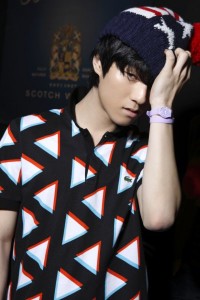 Ree: I pretty much agree with Amy. I think the issue is that there are too many rookie groups, and that essentially means less attention is being put on them, because our attention is forced to be divided. I mean, maybe it’s just me, but the hype when SHINee was debuting seemed so much larger than EXO‘s debut. And sometimes, I think attention is just given to the wrong groups.
Ree: I pretty much agree with Amy. I think the issue is that there are too many rookie groups, and that essentially means less attention is being put on them, because our attention is forced to be divided. I mean, maybe it’s just me, but the hype when SHINee was debuting seemed so much larger than EXO‘s debut. And sometimes, I think attention is just given to the wrong groups.
The talent pool doesn’t get any smaller, I think there groups out there who debut with talent, but without proper backing, a good debut song, and good marketing, they’re just going to fail. I mean, look at DGNA. Those boys are amazingly talented, but alas, they’re one of the most irrelevant groups of today. I don’t think it’s only a matter of not coming from a big company, but coming from a company that’s just really bad at promoting their artists and building hype.
Jessie: I think it is also worth noting that not only are there so many groups debuting, but many of them have line up changes by their second promotion. I know it isn’t impossible to be successful with these major changes (see KARA) but I think it is an obstacle that it can be related back to both the lack of training time and the inability to connect with fans.
Nabeela: Johnelle is right on. Rookies need, need more time to develop their skill set. Now that the demand for idols is so high, and because idols are staffing, as Subi already said, the entire entertainment industry, rookies are coming out of nowhere with hardly any formidable skills sets. It’s hard to anticipate quality when a group dynamic is established only a few months prior to debut.
